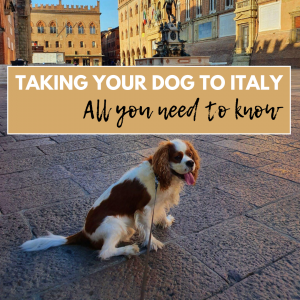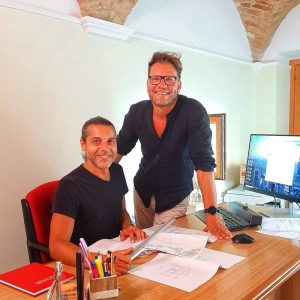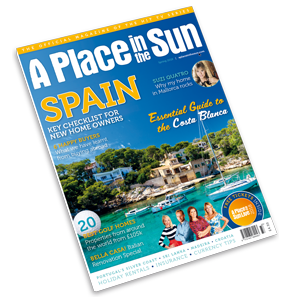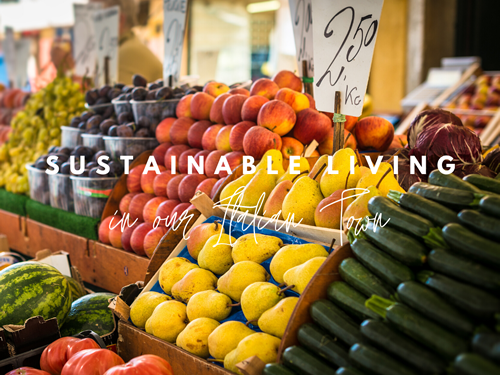
Sustainable Living in Our Italian Town – With or Without a Pandemic
“Today I believe we have to slow down our rate of production and consumption and to learn to understand and contemplate the natural world. We need to reconnect with our real surroundings …” Pope Francis, April 2020.
The coronavirus pandemic has got us thinking. Where it’s highlighted the (somewhat alarming) fact that many ‘developed’ countries are perhaps too reliant on a global economy and not as self sufficient as we would expect, it’s made us question how sustainable the way that we, as individuals live.
When renovating vacation homes for our clients, we enlist the services of local artisans (and have set up a non-profit to also promote their skills), together with using as many Italian products as we can.
Although there is little we can do to change the way our governments think about why sustainability really matters, what we can do is re think the businesses that we support, and try to spend our money where it can make a positive impact on our local communities.
Supporting local businesses
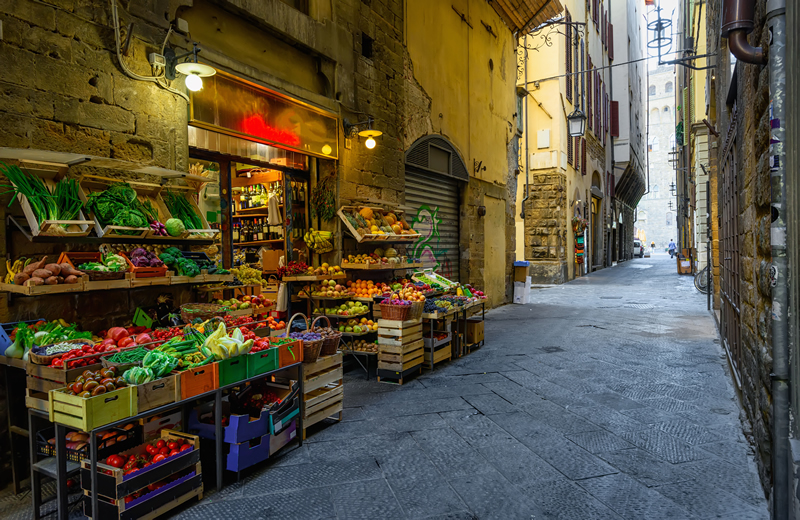
In our tiny hilltop town in Le Marche, it is relatively easy to support local businesses, in fact we do it each day without realising. Just like the UK of the past that my parents talk about, it is easy to shop locally for most of what we need. We buy our groceries from our local greengrocer, Sandro, who sells only fresh, local seasonal produce. Sandro’s father opened the store during the 1950’s, and it has provided our town with fresh fruit and veggies ever since.
In many towns and areas in Le Marche, we eat the food that is in season. That means no strawberries at Christmas or grapes in spring, but we can look forward to the end of summer and early autumn (fall) when they are ready to be picked and eaten.
The fruit and vegetables are high quality, very tasty and all come from local farms in our area. They are not flown in from abroad, or transported for miles on the back of gas guzzling trucks. And fresh means fresh, we buy what we need every couple of days as it does not last for weeks in the fridge (as it’s not supposed to). Quality food without the carbon footprint.
A visit to Sandro’s shop also guarantees meeting local people, who always stop to chat and pass the time. It’s surprising how people in such a small community, who see each other most days, still have so much to talk about. But believe me, we always do!
Almost every town in Le Marche holds a weekly market where farmers from the region sell their produce, and the fact that these are simply called ‘markets’, as appose to ‘farmers markets’ is indicative of the lack of any need for specific branding to appeal to the health conscious – by their very nature, Italians know the difference between quality food and the overproduced, genetically modified ranges that we may be used to elsewhere.
And again, our tasty tomatoes, fresh fennel and nutritious nuts have not made an unecessary journey to reach our plates, it’s all grown locally.
Quality meat, pasta, cheese & wine
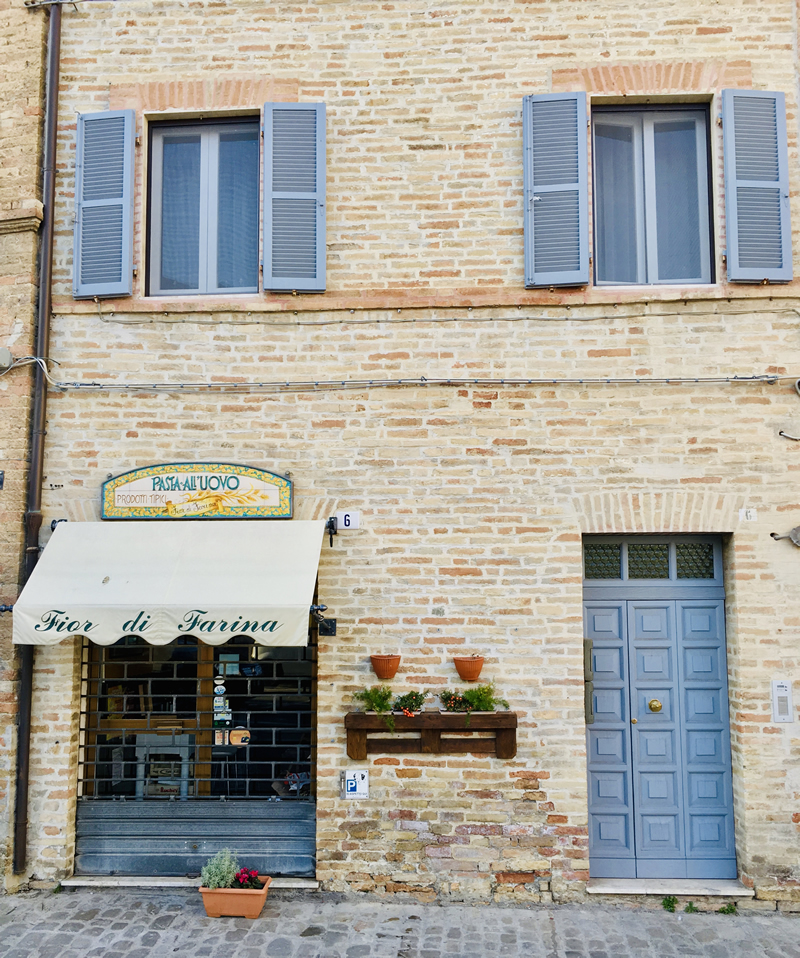
Although we don’t eat much meat, the family that owns the butchers shop on the outskirts of town sells meat from their own farm, enough to feed both Force and a neighbouring town. Lamb is ready in time for easter, chicken can be bought throughout the year, and they also create their own varieties of salami, prosciutto and even pasta sauces.
Le Marche is home to an abundance of wineries, each one producing its own unique brand and welcoming visitors to taste while deciding which one to buy. We have spent many an afternoon or early evening touring the vast wine cellars, hearing about how the drink is made and stored in huge barrels on site. Some have restaurants where you can enjoy several varieties with aperitivo food and snacks, while looking at a beautiful view of vast vineyards and rolling hills.
You can also return your bottles and have them refilled for a few euros.
READ MORE: 12 QUIRKY ITALIAN SUPERSTITIONS
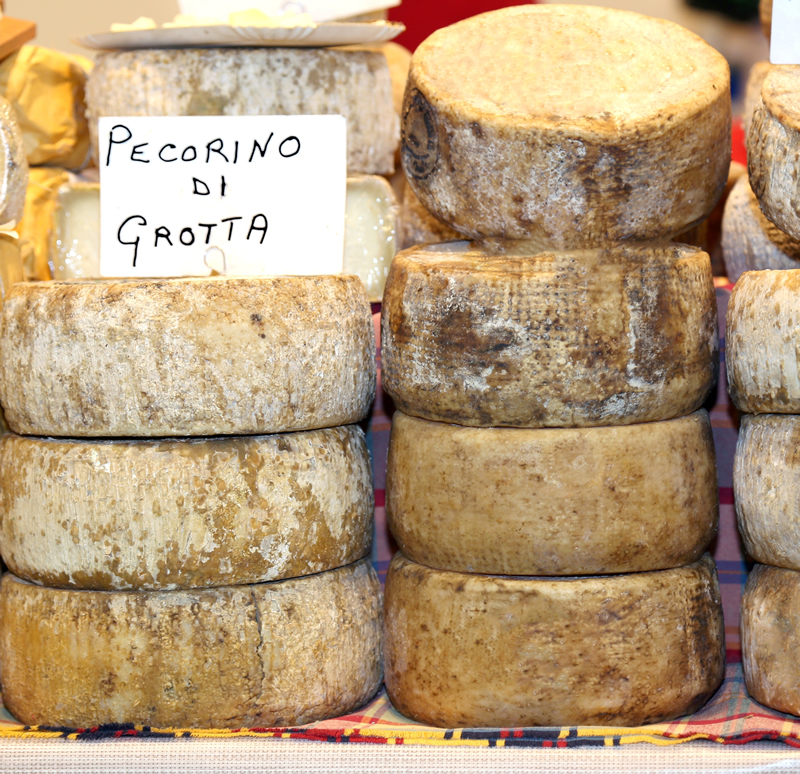
Pietro makes cheese at his dairy half way down the hill from our town, so this requires a short walk through through the countryside. A large table inside his tiny shop displays a selection of the cheese he has produced that week. All of it is delicious, and all of it fresh. The cheese also costs a fraction of the price that the supermarkets charge.
When we drive from Italy to the UK, we stop off at Pietro’s dairy and fill up a large bag for Davide’s mother, transporting it in our cool box and hoping it hasn’t warmed up too much by the time we arrive!
READ MORE: LIVING IN ITALY
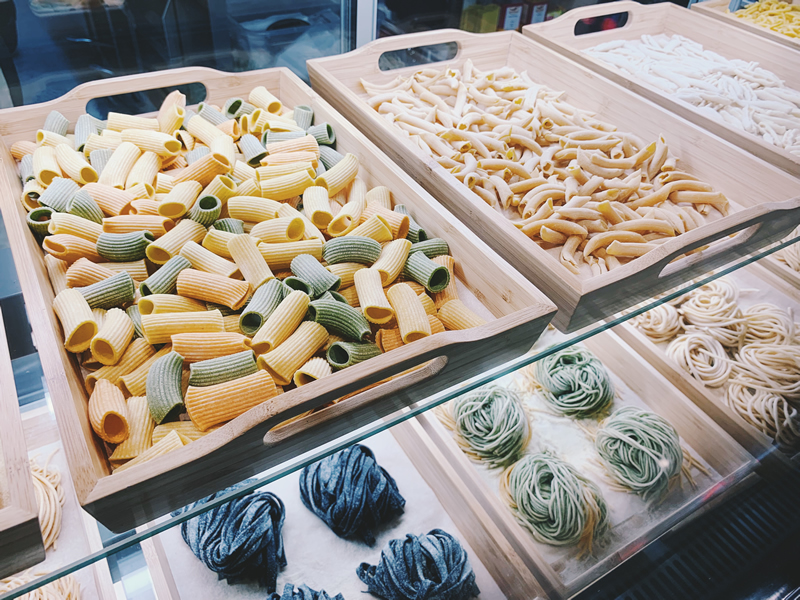
Fresh pasta can be bought from Pastifici – shops that sell an abundance of varieties of Italy’s favourite staple, including types that are specific to that particular town or region. Italy is also (perhaps somewhat surprisingly) very in tune with gluten free diets and most places provide these options, as well as whole wheat varieties.
Our bakery makes its own bread and when it runs out, we miss out on a daily loaf and have to make sure we are there earlier the following morning. And guess what? We don’t starve or go hungry! There are always plenty of home made cakes and biscuits on offer.
During the pandemic, when all Italians were told to stay at home, each local shop made deliveries to everyone in town. We didn’t have to worry about online slots filling up, or websites crashing because of multiple visitors, we ordered the old-fashioned way, by calling and paying over the phone.
Pope Francis hit the nail on the head when he said
“Let us not lose our memory once all this is past, let us not file it away and go back to where we were. This is the time to take the decisive step, to move from using and misusing nature to contemplating it. We have lost the contemplative dimension; we have to get it back at this time.”
There is a lot to be said for staying local, using sustainable and environmentally friendly products whenever we can, and appreciating what’s around us, pandemic or not!




